Remote Control of Thermostats Ensure Proper Temperature and Humidity, Protecting the Health of the Cannabis Crop Venstar’ ColorTouch® connected Wi-Fi® thermostats, Wi-Fi Temperature Sensors and Skyport® Cloud Services are being used to remotely control temperatures and humidity at a Southern Calif.-based cannabis growing facility. By providing the optimum environment, Authorized Venstar Dealer Chaffin Air Conditioning Read more
Featured Articles
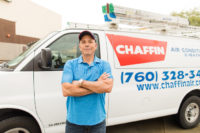
Remote Control of Thermostats Ensure Proper Temperature and Humidity, Protecting the Health of the Cannabis Crop
Venstar’ ColorTouch® connected Wi-Fi® thermostats, Wi-Fi Temperature Sensors and Skyport® Cloud Services are being used to remotely control temperatures and humidity at a Southern Calif.-based cannabis growing facility. By providing the optimum environment, Authorized Venstar Dealer Chaffin Air Conditioning has helped the grower double crop production and increase profits. Based in Cathedral City, Calif., Chaffin Air is a family-operated heating and air conditioning company.
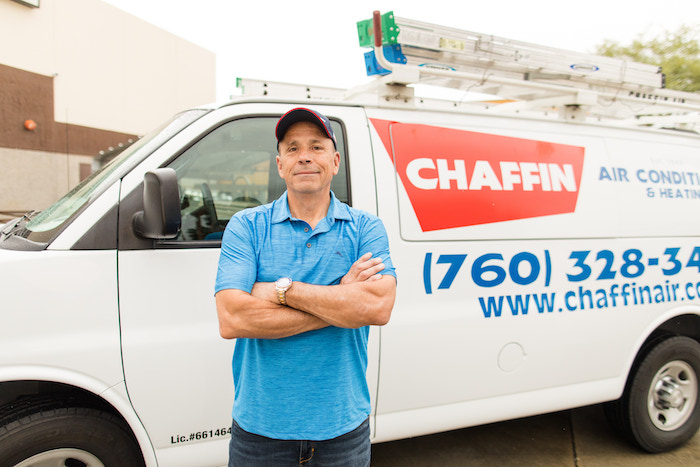
“Using Venstar’s Skyport, we remotely control ColorTouch thermostats to maintain proper temperature and humidity to guard the health of the cannabis crop,” said Patrick Chaffin, owner of Chaffin Air Conditioning. “By ensuring the perfect environment, we’ve helped the cannabis grower double the crop production and increase profits.”
Challenge: Maintain Temperatures and Humidity in Cannabis Grow Rooms
Environmental controls are essential to ensuring successful cannabis crops. CBD production requires a very expensive and complex growing process. The plants need specific daytime and nighttime temperatures as well as consistent humidity to maintain the balance needed for a quality product. One environmental deviation could potentially lose the entire crop.
The grower was looking for an HVAC energy management system that would:
- Enable remote monitoring of HVAC equipment
- Control humidity and temperatures in the grow rooms
- Enable remote control of thermostats using a single mobile app
- Provide an affordable solution to solve the energy management challenges
- Have one brand of thermostat to control all types of HVAC systems
Solution: Venstar ColorTouch Thermostats and Remote Sensors
Chaffin recommended Venstar’s ColorTouch Wi-Fi thermostats (model T8900) and Remote Temperature Sensors (model ACC-TSENWIFIPRO), which are remotely monitored by Venstar’s free Skyport Mobile App.
Chaffin Air installed more than 100 ColorTouch thermostats at the grower’s facility, which encompasses dozens of growing rooms ranging from 900 to 1,200 square feet. Each grow room has six ColorTouch thermostats: three thermostats control the air conditioning units with steam humidifiers while the other three thermostats control the de-humidification units. In addition, Venstar’s remote temperature sensors were installed in the grow rooms to monitor and ensure exact temperatures.
The grow rooms operate on 12-hour cycles: 12 hours dark and 12 hours light. During the dark hours, the temperature is maintained at 75–78 degrees. Within 30 seconds of the lights coming on, the temperature can reach 99 degrees.
Results: Controlling the Environment Doubles Production, Increases Profits
Using Venstar’s solution to control the temperature and humidity in its grow rooms, the grower is able to produce a crop in half the time as a non-controlled growing environment. This faster production time as well as the reduction in lost crops helps the grower increase profits.
Benefits of the Venstar energy management solution include:
- An affordable alternative to an expensive HVAC energy management system
- Remote monitoring and control of temperatures and humidity
- Reliability to ensure the proper environmental conditions
- Ability to remotely view the system and energy usage
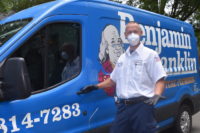
Recently, Mechanical Hub spoke with Mike Fowler, franchisee of Benjamin Franklin Plumbing and One Hour Heating & Air Conditioning in Charlotte, NC., about his business, COVID-19 and what it’s like to have the backing of such known company and brand. Now that the country had “reopened,” are there any different procedures in place for the Read more
Recently, Mechanical Hub spoke with Mike Fowler, franchisee of Benjamin Franklin Plumbing and One Hour Heating & Air Conditioning in Charlotte, NC., about his business, COVID-19 and what it’s like to have the backing of such known company and brand.
Now that the country had “reopened,” are there any different procedures in place for the company
FOWLER: In Charlotte, North Carolina, the reopening of the economy is in full effect. Our servicemen in the field are continuing to implement the safety procedures required by the CDC and our company, and those measures will be in place indefinitely. As we prepared to reopen our office for our office staff, there were a lot of things to consider. The call center and dispatch teams make up a large portion of our employees. We had to invest in plenty of materials to ensure the office staff could safely return.
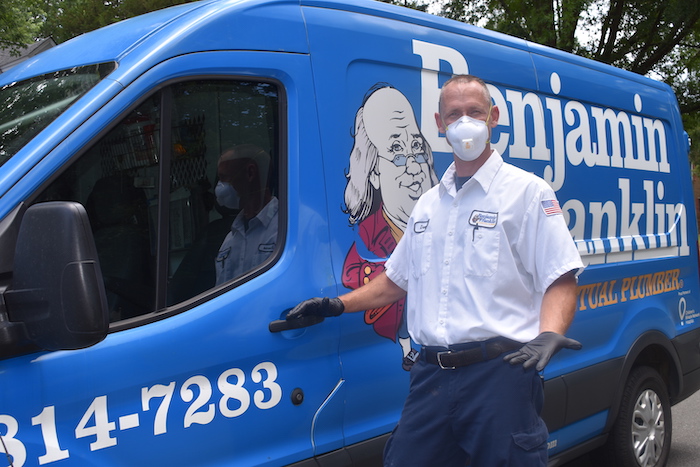
A Benjamin Frankling Plumbing employee displays the PPE used on the job.
We created new layouts and seating arrangements to ensure social distancing is observed, we have thorough cleanings daily for all high touch points, and we allocated a larger budget to purchase hand sanitizer, soap and paper towels since frequent hand washing is required. Our employees in the field have been practicing these safety protocols for months, so our employees in the office are now our primary focus as we adapt to the new normal. Our main priority is the safety of our employees, and throughout the process we strive to ensure they each feels comfortable and safe coming back in.
What protocols or procedures did Benjamin Franklin Plumbing implement as a result of COVID-19?
FOWLER: The health and safety of our customers and employees is paramount, so we implemented stringent protocols and procedures based on the latest information from the Centers for Disease Control and Prevention (CDC). By mid-March, we rolled out more strict guidelines to help ensure the safety of our staff and those we service. Since that time, we have required all employees to wear Personal Protective Equipment (PPE) including masks and gloves, as well as practice social distancing and regularly wash their hands and sanitize, especially when it’s required for us to enter a home to fulfill a project.
Since we are entering our customers’ homes, we require our employees to wear PPE the entire time they are working. We continue to supply all PPE to our staff members, so they’re fully equipped with safety gear while they’re on the job. We have asked all of our customers to inform us immediately if someone in their home becomes sick, and we’re being flexible and understanding when service appointments need to be rescheduled or cancelled due to illness. Thankfully we already had contactless payment options throughout our system, so the biggest protocol update in terms of customer interaction was utilizing FaceTime and videos for consultations and moving all of our documents to be signed and completed digitally.
Were there any advantages to being a franchisee during these uncertain times?
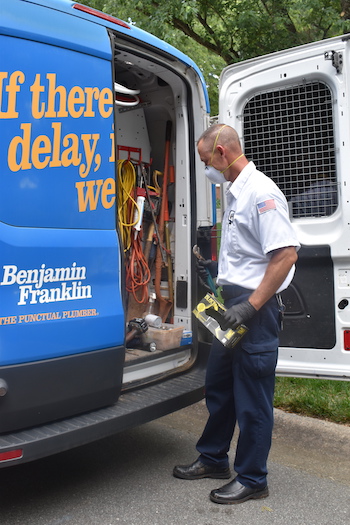 FOWLER: Absolutely. While we were deemed as an essential business and could continue to operate while many businesses could not, there were a lot of necessary changes and we were still impacted. Our franchisor, Authority Brands, is the parent company of seven leading home service franchisors, America’s Swimming Pool Company, Benjamin Franklin Plumbing, The Cleaning Authority, Homewatch CareGivers, Mister Sparky Electric, Mosquito Squad, and One Hour Heating and Air Conditioning.
FOWLER: Absolutely. While we were deemed as an essential business and could continue to operate while many businesses could not, there were a lot of necessary changes and we were still impacted. Our franchisor, Authority Brands, is the parent company of seven leading home service franchisors, America’s Swimming Pool Company, Benjamin Franklin Plumbing, The Cleaning Authority, Homewatch CareGivers, Mister Sparky Electric, Mosquito Squad, and One Hour Heating and Air Conditioning.
The corporate team has always excelled in providing strong marketing, technology and operational support to our business, and over the past few months, their exceptional leadership and guidance helped us stay afloat.They kept us up-to-date with everything going on throughout the pandemic, from COVID-19 safety procedures and regulations to guidance for applying for government relief such as the Paycheck Protection Program. We’re grateful to have had ongoing communication with them over the past few months, and they continue to play a big role in keeping us informed and providing us with knowledge and resources.
What do some aspects of the business model blueprint look like at Benjamin Franklin Plumbing?
FOWLER: Being part of a franchise system and being surrounded by a strong network of business owners across the United States proved to be invaluable as we all navigated through the unknown. Benjamin Franklin Plumbing already had a Franchisee Leadership Team (FLT) established prior to the pandemic, and it exists to continuously improve our brand as a whole with systemwide collaboration and ongoing communication.
The motto ‘working for yourself, but not by yourself’ is echoed from all aspects of the Benjamin Franklin Plumbing franchise, and forming relationships with both the home office and fellow franchisees, in addition to the support of my family and the communities we operate in, continues to propel my business forward.
I’ve been a franchisee with the company since 2003 in Charlotte, North Carolina and I’m proud of how we’ve molded the proven business model from Benjamin Franklin Plumbing to fit our community. Everything starts with marketing. We have a dedicated marketing staff that executes monthly initiatives to ensure the call center receives calls.
We take training very seriously, and every new hire—whether it be as a marketing team member, accountant, a dispatcher or a service plumber in the field—goes through intensive training to ensure our customers experience a seamless process from start to finish. We’ve needed to change how some things are done over the past few months, for example conducting interviews through FaceTime, but with a strong structure for our business already in place, we’ve continued to provide services locally with the support of our franchisor.
What types of investments are being made by Benjamin Franklin Plumbing to ensure better success and continued growth?
FOWLER: Through the FLT, Benjamin Franklin Plumbing is always listening to its franchisees and implementing enhanced operational procedures as needed. They invest in the tools we need as franchisees to operate our business successfully.
For our business in Charlotte, we like to invest in our community both by giving back through charitable efforts, but also investing in the next generation of the workforce through our best-in-class training programs. With the unavoidable shortage of plumbers, we’re always working to educate those looking for their next career about the opportunity to join our team.
Our services were deemed as essential throughout the pandemic because, put simply, our community needs us as much as we need them. With the support of our franchise system and our dedicated employees, we continue to grow.
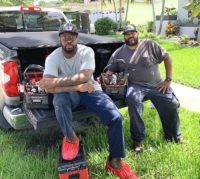
Expecting his second daughter at any moment, Omar Harris (@omartheplumber) knew he wanted to do something so he could provide for his family. The goal was to find a career that was an absolute necessity so job security would always be there. “I remember discussing what I wanted to do with my fiancé, Xylina. She Read more
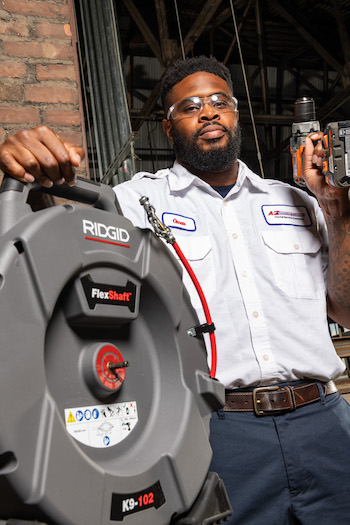 Expecting his second daughter at any moment, Omar Harris (@omartheplumber) knew he wanted to do something so he could provide for his family. The goal was to find a career that was an absolute necessity so job security would always be there. “I remember discussing what I wanted to do with my fiancé, Xylina. She told me ‘whatever it is that you want to do I support you 100%, as long as you’re happy. Even if that means selling flowers on street.’ It would change the dynamic in our household greatly,” says Harris. Xylina repeatedly told him this before he eventually made the final leap.
Expecting his second daughter at any moment, Omar Harris (@omartheplumber) knew he wanted to do something so he could provide for his family. The goal was to find a career that was an absolute necessity so job security would always be there. “I remember discussing what I wanted to do with my fiancé, Xylina. She told me ‘whatever it is that you want to do I support you 100%, as long as you’re happy. Even if that means selling flowers on street.’ It would change the dynamic in our household greatly,” says Harris. Xylina repeatedly told him this before he eventually made the final leap.
“My fiancé plays a major role. Without her, the whole family dynamic would fall apart. I am fortunate. She’s a great mom, a great friend, and she really keeps everything in the family running. She’s extremely patient and understanding when I’m dead tired. I will forever be grateful for the sacrifices she has made and for the unconditional support she has shown me,” says Harris.
But Harris would be remiss if he didn’t mention his parents. They worked hard for what they have and “they instilled in me the drive needed to be the best at what I do. Growing up, they always told me learn a trade because you can demand your own salary,” says Harris.
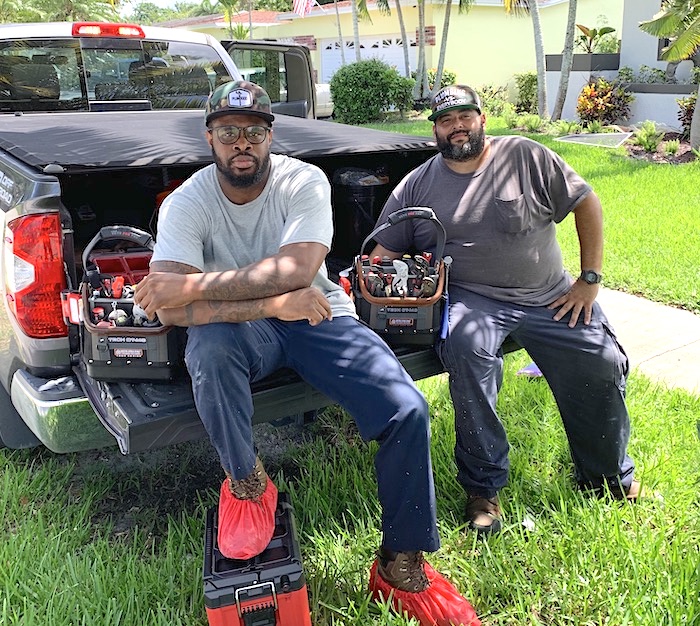
Harris with Conrad Ensenat (Broward County Facilities)
Harris initially started out as an apprentice with a local union doing construction plumbing. He eventually left to go a private company that mainly did service and drain cleaning. “I learned a lot with that company and made some really good partnerships/friendships. It allowed me to grow, not only as a man, but as a plumber, too,” says Harris.
For the past two years, Harris has worked as a plumber for Broward County Facilities (Florida) as a plumber specializing in drain cleaning. Some may not know, but Harris is a certified HVAC technician and Certified Fire Inspector for the state of Florida. One of the most rewarding aspects of the job for Harris is seeing the customer’s smile after the work is done, correctly. (Some of Harris’s go-to tools are RIDGID RP241 press tool, RIDGID E110 wrench, Fluke T5 600 Voltage, Continuity and Current Tester and the Milwaukee Tool M12 PEX Expansion Tool Kit.)
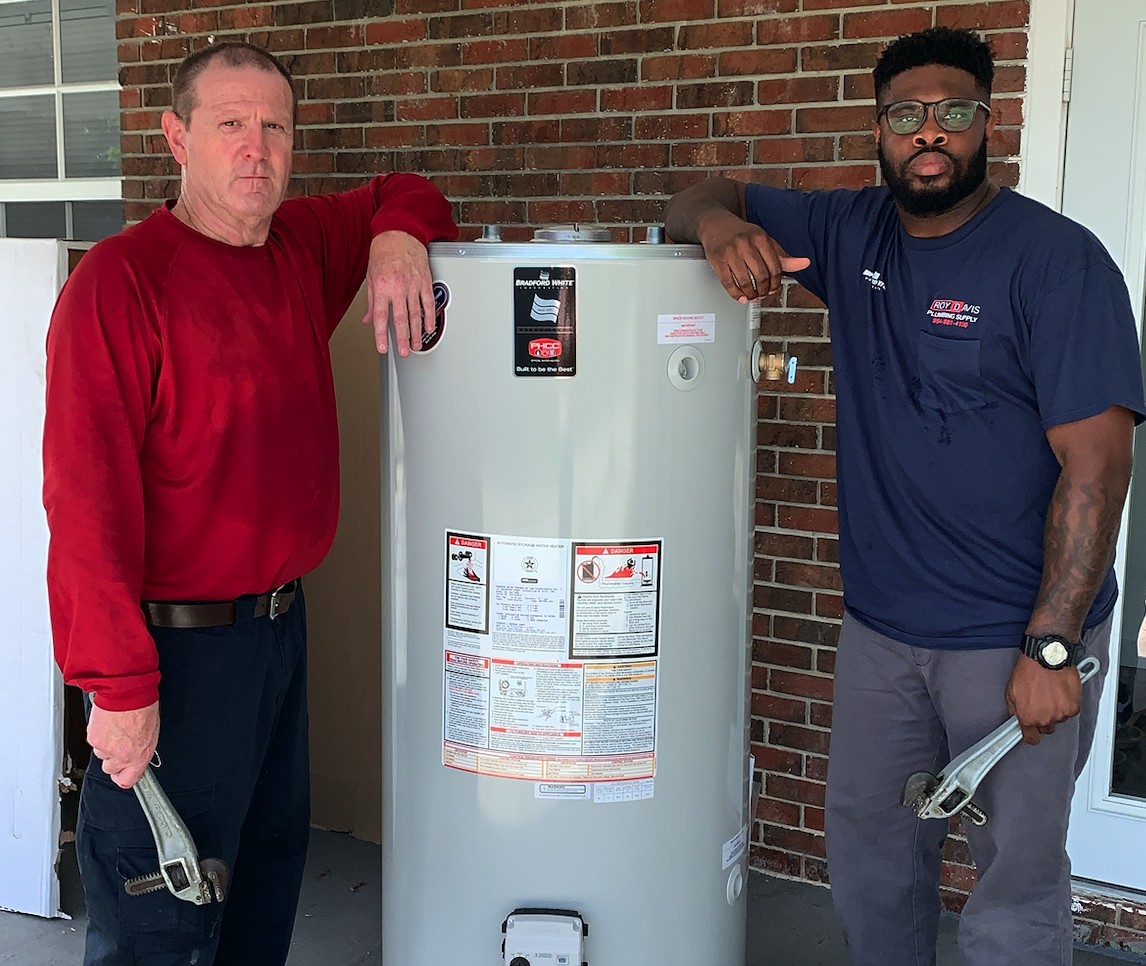
Harris with Roger Bircheat, Master Plumber, Broward County Facilities, who has been in the trade for more than 30 years.
As far as learning the trades, Harris is always learning. “I love to learn from others so that I can be the best plumber I can be,” says Harris. One of Harris’s mentors and a person he looks up to is Hiram Martinez, master plumber, A to Z Statewide Plumbing, West Park, Fla., who taught Harris a lot, and was very patient with him. Another influence includes Conrad Ensenat, a residential plumber. “He’s a great friend, but he also taught me a lot.”
John Driscoll Jr., owner, A to Z Statewide Plumbing, took Harris under his wing and really showed him the ropes in drain cleaning. “He always drilled into my head to never skip steps and to take my time following the steps. He really helped me with laying the foundation of my plumbing skills,” says Harris.
Harris also recognizes John Thompson, a great person with whom to speak. From his family values to how he runs his business, Thompson has garnered a tremendous amount of respect from Harris. George DeJesus has also been instrumental in showing Harris a lot of “tricks of the trade.”
And Eric Aune. “I learned a lot from watching him on YouTube; he’s a great teacher.”
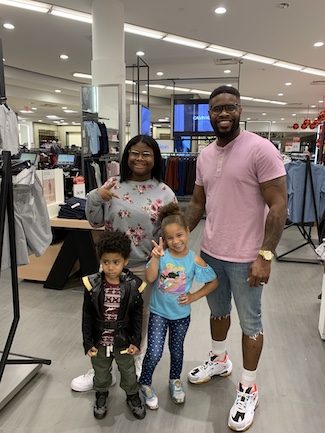
Harris spending some family time shopping with his kids.
But does Harris consider himself a mentor to others? “Honestly, yes I do consider myself a role model. I feel like if I can make it, anyone can. I’ve had a lot of hardships in my life and I’ve been able to overcome them. Many didn’t believe in me but I was fortunate enough to have a few who did. I’m willing to help anyone who would like to learn,” says Harris.
How can the industry promote the trades? Acceptance and training, says Harris. “We need to have plumbers from all walks of life from all over the world. In addition, we don’t need to be so hard on someone trying to learn. At times, I’ve seen this industry a little too hard on some individuals. It can be a little intimidating for someone just starting out. Instead, we need take the opportunity to coach, teach and possibly train the individual so that in the future they can be a better plumber.”
Social media has opened many great opportunities for Harris. “It has allowed me to participate in my friends’ lives who live in other states. On Instagram, we have group chats just to check in or ask questions. Social media is a great platform to build connections with people from all over the world. It is a useful tool to learn from and utilize to keep up with the ever-growing industry,” says Harris.
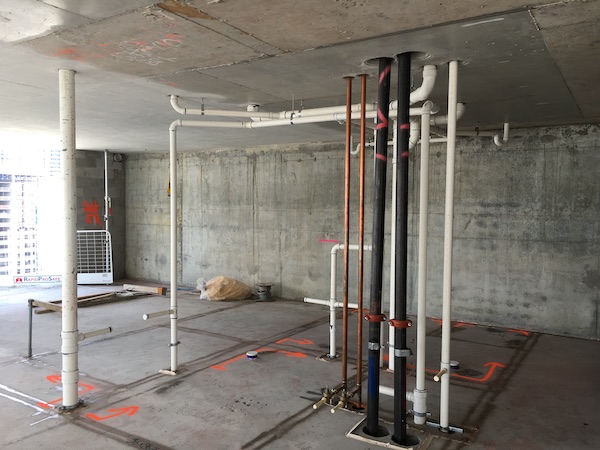
Just another day at the office.
Speaking of social media, Harris recently was chosen to attend a past RIDGID Experience. “The RIDGID Experience was a phenomenal time!” says Harris. “I met some great people who now I consider great friends. I gained a lot of knowledge and have a pool of great minds to pull from when I need help with something. I am very grateful and honored I was chosen for the RIDGID Experience. RIDGID is a great company and it’s awesome that they host that event. How many other companies are doing this?”
The last time Harris said “today is a great day,” he was removing a mainline stoppage and there was a clean out right in front of the house, holding sewage. “I removed the stoppage in three feet, and I actually yelled out on the top of my lungs, ‘TODAY WAS A GREAT DAY!’”
In the end, Harris spends whatever free time he has working out and spending time with his family. And, most of all, trying his best to spend time with his kids, to be there for all of their accomplishments, and incorporate his family into what he does. “I try to be the best version of me for my kids. My family has been my backbone in this journey and I hope to instill that same drive I have in me, in my kids.”
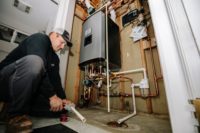
As you read this, thousands of American families are considering a move to less densely populated areas. Towns and cities within the Rocky Mountain States – Idaho, Montana and Wyoming specifically – are seeing unprecedented population growth. The idea of living in rural and suburban areas is gaining a lot of interest among residents of Read more
As you read this, thousands of American families are considering a move to less densely populated areas.
Towns and cities within the Rocky Mountain States – Idaho, Montana and Wyoming specifically – are seeing unprecedented population growth. The idea of living in rural and suburban areas is gaining a lot of interest among residents of the country’s more populated regions.
Popular opinion in these scenic areas attribute the migration to three major factors: social unrest in urban areas, prevalence of COVID-19 cases, and the ability for more people to telecommute, professionally.
The owner of a moving company in Cody, WY, noted that they had relocated a dozen families from California in May alone. Real estate prices are rising, counter to what would be expected during a recession. Similar stories come from Montana.
“A customer of mine who is a real estate agent just sold a $700,000 home sight unseen to a family from back East,” said Andy Mickelson, owner of Mickelson Plumbing and Heating Inc. in Missoula, MT. “He took them through the home via Skype just before a contract was signed. Migration is extreme. Houses are selling fast, and high.”
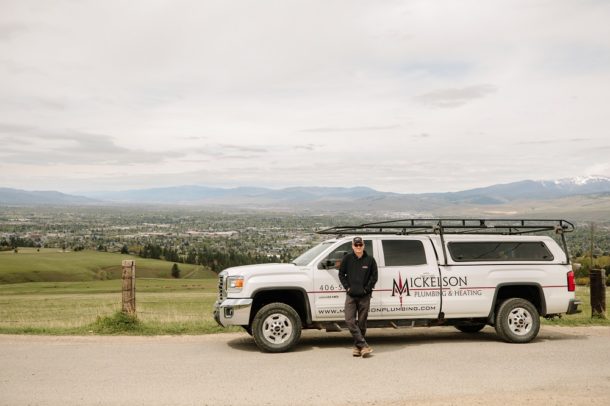
Earlier this year, the same real estate agent referred a recent homebuyer to Mickelson for boiler replacement. Not surprisingly, the house was purchased in a hurry.
“The homeowner ran out of domestic hot water a week after buying the home, so we replaced the igniter on the mod-con boiler which was supplying heat to an indirect tank,” said Mickelson. “We also found that the heat exchanger had failed, so we returned to replace the boiler as soon as we could.”
Mickelson is a Montana native who started his own company in 2011, after 13 years at a large mechanical firm. Today he employs two full time technicians and has the work for more – if only he could find the right people. He’s a self-proclaimed wet-head, but his skill set also includes commercial controls, plumbing and air conditioning.
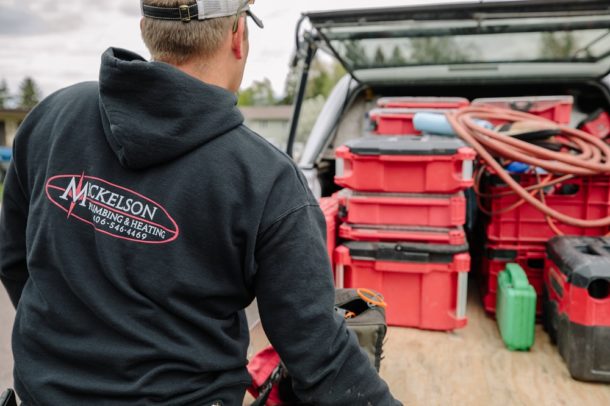
While Mickelson’s work can be seen in commercial buildings and full-blown mountainside mansions (he’s done work for some of the world’s most famous musicians), this specific home was average in every way.
Smart components
The 2,500-square-foot bi-level was constructed in the 80s, and the aluminum-block condensing boiler he found in the house was, to his knowledge, boiler number two. Installing boiler number three, a 199 MBH Aspen Combi made by U.S. Boiler Company, would have been pretty straightforward if not for several messy system changes that had been done in the past.
“The system was a result of 30 years of additions and haphazard corrections,” explained Mickelson. “At one point a water softener had been added, and an irrigation system was tee’d into the domestic piping. On top of that, the first retrofit was a hack job.”
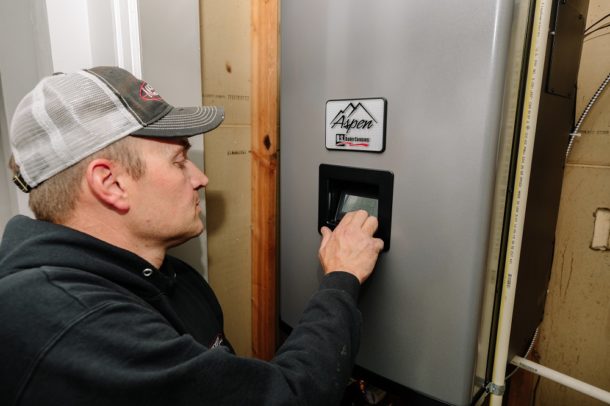
At least the three zones of fin-tube baseboard were in good condition; one downstairs and two upstairs. By the time he started to cut the supply and return piping out of the closet mechanical room, he already had a plan for the new system.
“I pair a heat load calculation with a radiation measurement,” said Mickelson. “This not only tells me the supply water temperatures I’ll need for proper outdoor reset programming, but it gives me the flow and head I’ll need out of my system pump. This is valuable information to optimize comfort and efficiency with two components I used on this job.”
“A Taco 0018e circulator allows me to precisely set my flow rate for a 20°F Delta-T, and paired with U.S. Boiler’s Sage Zone Control, the pump will respond perfectly as zones open and close.”
Without the help of a buffer tank, the Sage Zone Control allows the boiler to start at low fire and only increase to the firing rate needed for the zone (or zones) calling. Mickelson inputs the size of all three zones, and the boiler fires accordingly, never exceeding the actual load, and the ECM circulator responds by modulating the flow rate across the system.
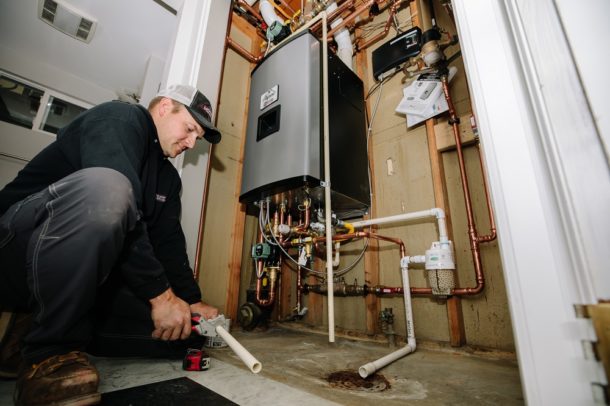
“A single circulator with baseboard and zone valves is perfect for this setup,” said Mickelson. There’s never a concern about being over- or under-pumped. This house needs about five feet of head and five GPM with all zones open.”
“Both the Sage Zone Control and the 0018e are very easy to program,” he explains. “The panel is accessible through the boiler’s Sage Control, which is connected to the boiler via a CAT 5 cable. I access the pump via a Bluetooth app on my phone. It has a number of different modes; constant speed, proportional pressure, and constant pressure, as well as a self-adjusting proportional pressure mode.”
The perfect fit
For simplicity and space savings, Mickelson installed the Aspen Combi instead of adding an indirect tank. The house only has two occupants, so there’s never a concern of running more than two showers at a time.
Connections to the combi boiler were very easy to make from the bottom side of the unit, even in the cramped closet. Adjusting the burner for Missoula’s 3,200 foot elevation was simple. The factory-supplied exhaust fitting has a built-in test port for a combustion analyzer, and the boiler cabinet has a side access panel for easy access to the gas valve.
“Taco’s mobile app for Bluetooth connection to the circulator makes changing modes, etc., very easy, and all feedback from the Aspen boiler and the Sage Zone Panel read out in plain English on the boiler’s touchscreen display,” said Mickelson. “I didn’t need a secret decoder ring to set the unit up.”
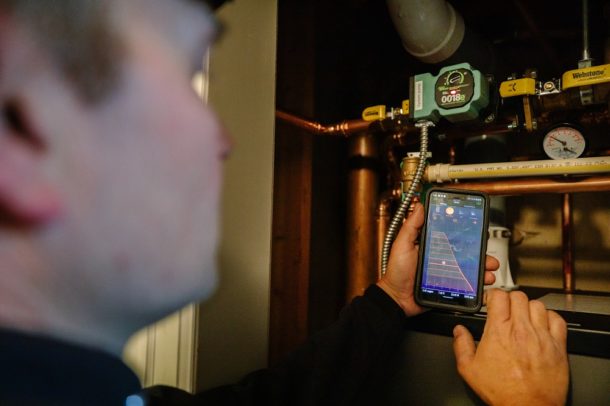
The homeowner’s frustration at buying a property that immediately needed a new boiler came at least with a silver lining. The new system is comfortable and reliable. Ignition is smooth, and the loudest noise that the system makes is the baseboard heating up. That’s a very good thing, considering that the mechanical closet is adjacent to the owner’s home office.
As working from home in the Rocky Mountains becomes more popular, the mechanical contractors who’re best suited to provide the right solutions will benefit while western towns grow.
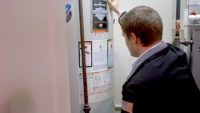
Recently, Mechanical Hub spoke with Dustin Bowerman, Director – Corporate Training and Product Support, Bradford White, regarding information surrounding gas vs. electric water heaters. The following is an exclusive Q&A. Which type of water heater is more environmentally friendly? Why? Bowerman: Although gas heaters have an exhaust element that most will immediately say is less Read more
Recently, Mechanical Hub spoke with Dustin Bowerman, Director – Corporate Training and Product Support, Bradford White, regarding information surrounding gas vs. electric water heaters. The following is an exclusive Q&A.
Which type of water heater is more environmentally friendly? Why?
Bowerman: Although gas heaters have an exhaust element that most will immediately say is less environmentally friendly, you have to consider the carbon footprint of how the electricity is generated, too. Unless coming from a renewable source, there is an inherent environmental effect with both of these fuel sources.
What is the difference in cost between the two types?
Bowerman: It’s mostly about supply and demand, although there is a regulatory element. As a rule, residential electric water heaters have fewer components, therefore are less costly to manufacture; however, in some locations, regulations or codes are driving towards the use of heat pump water heaters (HPWHs).
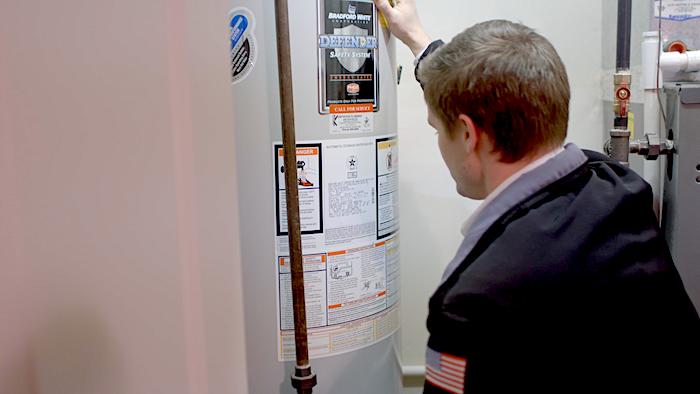
Is there a noticeable difference in return on investment for each type?
Bowerman: Both categories offer high efficiency options, as well as specialty products such as tankless or heat pump water heaters, that can reduce utility spend while delivering the same amount or more hot water than previous models. Though, these higher efficiency options typically come with higher maintenance costs.
Normally, a homeowner will request a replacement of what was already there. How difficult is it to change to a specific water heater source (gas or electric) if the home is equipped with only on type of energy source? (If home has only electric source for WH, what goes into gas conversion and vice versa)
Bowerman: Upgrading utilities can be fairly involved and will certainly require a professional’s experience. If converting from gas to electric, not only will a plumber be needed, but the job will require an electrician, to upgrade the electrical panel and run an outlet for an electric water heater. Converting from electric to gas may require adding gas piping to the home or updating the system to handle the additional demand. An all-electric home likely doesn’t have a chimney system, making gas water heater options more limited. Direct vent, power vent or power direct gas model would need to be utilized. Natural gas availability is also sometimes limited, so propane options may have to be considered if a home or business owner wants to stop using an electric product.
Overall, which is easier to install?
Bowerman: Water connections are the same on both gas and electric. Gas water heaters will have both a gas connection and an exhaust connection that must be done to complete the installation. An electric water heater has line voltage connections with, as a rule, three connections total. Both should be safely installed to comply with all local code requirements by a professional.
Does brand matter more than water heater type?
Bowerman: The type of application is always important, just like having the right tool for the job. Both types of water heaters have their strengths. Of course, brand does matter. Not every water heater is manufactured to the same level of quality nor does every company provide the same level of support and customer service.
There is a lot of talk about legionella and water-borne pathogens lately. Is there one type that is more beneficial in terms of this?
Bowerman: No. Energy source does not impact the quality of the cold-water supply being delivered to the water heater.
What is the ratio of homeowners across the country using one type over the other?
Bowerman: Generally, the entire water heater market is close to a 50/50 split on gas versus electric.
For electric, what happens during a power outage?
Bowerman: The electric water heater requires electricity to heat water. If power is lost, the tank will not reheat the stored water until the power is restored. The already heated water in the tank will remain usable until depleted or gradually cool down.
Does tankless (electric vs. gas) add another layer or dimension to this conversation? Explain.
Bowerman: Yes. Conversations about tankless water heaters are common; however, in many situations the electric options are not as often considered for whole home applications. Electrical requirements may be unrealistic for many homes while gas technologies have made great advancements making tankless gas viable, using natural gas or propane, in the right installations and climates.
Is the footprint between the two (gas vs. electric) noticeable in terms of space?
Bowerman: In terms of the actual products, like gallon capacities are commonly similar diameters, using comparable footprints. Overall, space variations will be more about the gas product’s “add-ons” (e.g. blower, draft hood) due to venting requirements.
In terms of longevity, which type is more reliable?
Bowerman: National averages for functional lifespan tend to be a couple years longer on electric water heaters.
Can you talk in terms of efficiency for both types?
Bowerman: Both energy sources offer high efficiency models. If looking at base models, electric water heaters employ immersion heating elements. As these are directly submersed into the water, most of the elements’ heat energy is being absorbed into the surrounding water. Gas water heaters employ a combustion chamber that traditionally is located below the water tank. Heat is transferred through the bottom of the tank in addition to the flue(s) that is surrounded by the stored water.
This isn’t the whole story. Annual operating cost is another measurement than can be used to compare models. While these costs are largely influenced by the local utility pricing, gas models usually show less annual operating costs. Water heaters are rated based upon how much hot water they can deliver (i.e. First Hour Rating). Depending on their First Hour Rating, models will fall into one of four draw bins. A model must only be compared to other models in the same draw bin, as this will impact the operating cost.
Could the decision gas vs. electric come down to how much water will be needed to heat? (How many people in the home and for what functions)
Bowerman: Infrastructure, what fuel source is available, and hot water demand are the largest variables in water heater selection and contractors need to understand these prior to making suggestions and doing installations.
Are electric water heaters safer?
Bowerman: Having your water heater installed and serviced by a qualified professional is the best way to make sure that your gas or electric fueled water heater is performing properly and safely.
Finally, why is the question of gas vs. electric so polarizing?
Bowerman: It’s due to a lack of understanding. For many contractors in the plumbing trade, electricity is not a part of their daily work, making it mysterious. For consumers, it’s similar. They are generally more comfortable with what they use on a daily basis and has historically worked for them.
